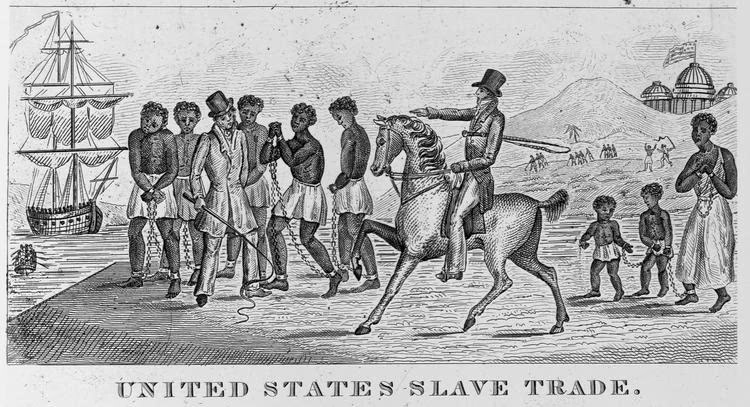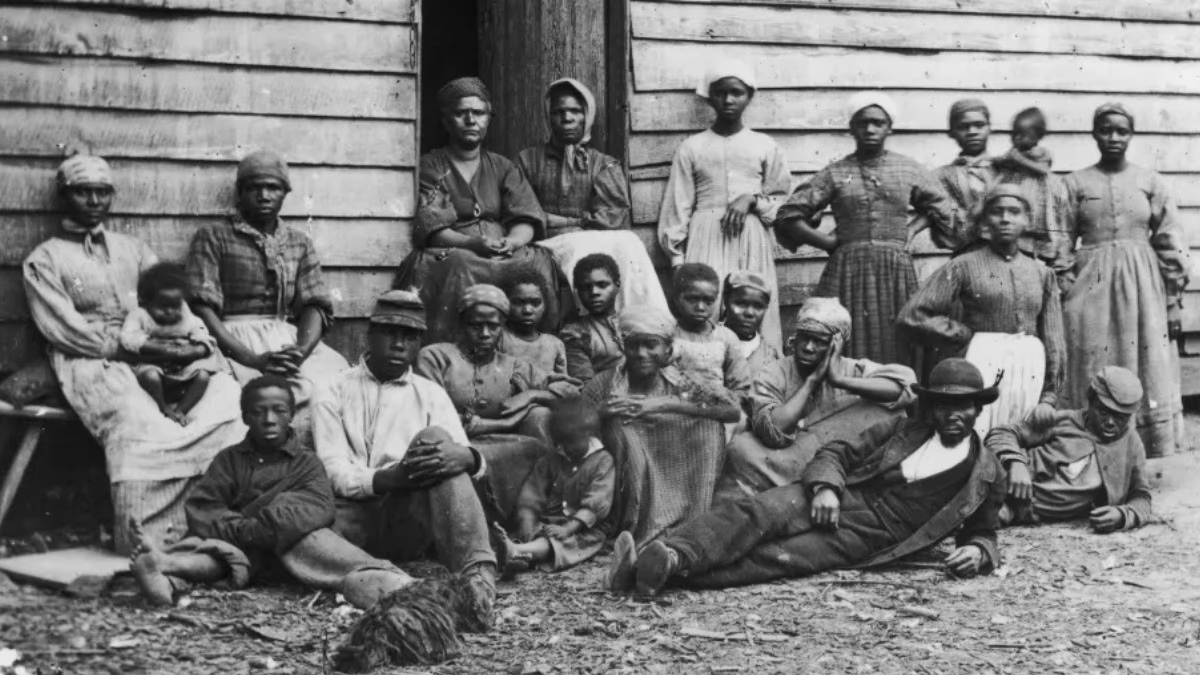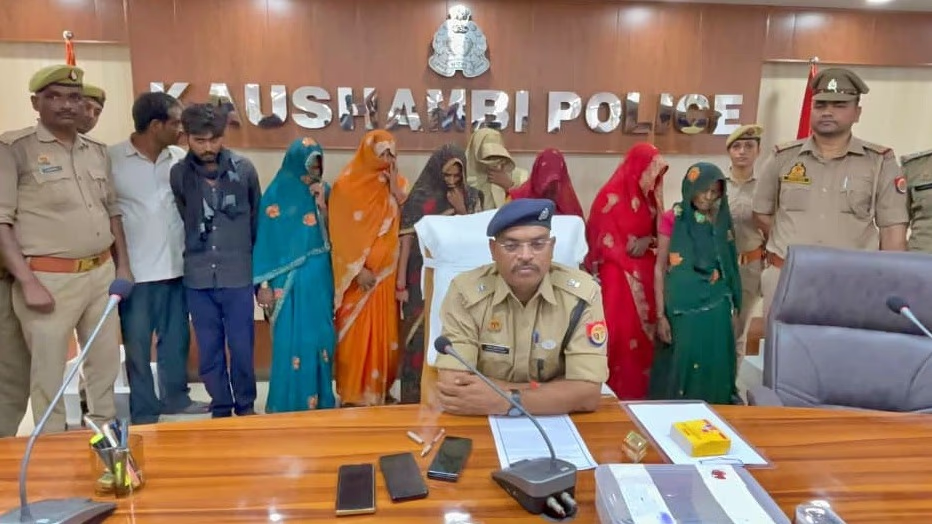Have you ever heard of a country that was established after another nation bought land abroad to settle its freed slaves? Well, it actually happened and the connection traces back to the United States. As the election fervor ramps up in the US, it's worth taking a look back at a defining chapter of American history. Whether Donald Trump or Kamala Harris wins, the outcome of the American election has global implications. Hence, knowing this significant story from American history is crucial.
The past, present, and future of America, fondly known as Uncle Sam, influence the rest of the world profoundly. There are many forgotten chapters in American history with far-reaching messages. From the eras of Lincoln, Martin Luther King Jr., and Kennedy, this nation, which gained independence in 1776 (171 years before India's independence), has evolved continuously. From the era of jazz to pop music, America taught humanity numerous lessons on civil rights and racial equality.
The Story of Slavery
America was never just the land of whites. It belonged to the Native Americans who reduced to only 2% by the 19th century. However, there was a significant African population brought as slaves. They formed 15% of the population but were uncounted as they were considered slaves. Although they replaced Irish laborers who came with the English, they had zero rights. Slavery was legal, and these African Americans worked on American farms, built buildings in the capital, and turned America into an industrial hub for over two centuries.
However, some people in America felt the human pain of slavery. They questioned how one human could enslave another. This idea sprouted long before President Abraham Lincoln. President James Monroe thought of freeing them. Northern states freed them, but the question arose—where would these liberated individuals go? Back to Africa?
Then the idea of creating a new country came up. Let's dive into the story of the country America founded by buying land abroad.
The Idea of a New Nation...
These freed slaves had lived in America for generations and didn't know their ancestral villages in Africa. President James Monroe and some wealthy landowners began searching for land in Africa. They chose Western Africa and bought land to establish a country called Liberia, meaning 'Land of Liberation'. Its capital was named Monrovia after President Monroe. It was even given a flag resembling the American flag, which it still uses today.
Key Figures Behind the New Country
Besides President James Monroe, key figures in establishing Liberia included Paul Cuffe, the founder and first president of the American Colonization Society, who played a vital role in buying the land and setting up the colony. Jedediah B. Crum, Liberia's first governor, led the initial settlement in 1822 and became the nation's first leader. Robert Ellis, the second governor of Liberia, helped develop the country and make it an independent nation. Joseph Jenkins Roberts, Liberia's first president, declared Liberia's independence in 1848 and became its first president.
Funding the New Nation
Setting up Liberia cost America around $1 million, a substantial amount back then. This sum was raised by the American Colonization Society, which included contributions from many American citizens and organizations. In 1819, the US government allocated $100,000 for Liberia's establishment.
The American Colonization Society ran campaigns to raise funds for Liberia's development, receiving contributions from several American citizens. Politicians like Senator John Calhoun donated $10,000, Senator Henry Clay contributed $5,000, and lawyer Daniel Webster provided $2,000.

Source: aajtak
Where and How People Settled
Before Liberia's establishment, various African tribes resided there. In 1822, the American Colonization Society bought 36,000 acres near the capital Monrovia for $300 from a local tribal leader. They sent ships to transport the first settlers and provided them with land. Initially, several African tribes opposed this new settlement, fearing loss of their land and freedom. The British government also opposed it, along with slave owners who didn't want to lose their slaves. Despite these challenges, the American Colonization Society continued its efforts, gradually developing the country.
Challenges of the Unique Nation...
The story of Liberia is fascinating and unique. It is a nation established by the descendants of American slaves seeking freedom and equality. This tale began in the 18th century when America's slavery practices were at their peak. Many American slaves yearned for freedom but had to fight for their rights. During this period, the American Colonization Society decided to establish a colony in West Africa. The society aimed to free the slaves and provide them an opportunity to start a new life. They purchased land in West Africa and set up a colony named Liberia, meaning 'liberty'. Liberia was founded in 1822.
Derived from the Latin word 'liber', meaning 'liberty', Liberia's journey was not smooth. The nation faced numerous challenges like economic crises, political instability, and social tensions. The residents had to fight for their identity and freedom. Liberia's history is full of ups and downs. Post-establishment, many American slave descendants settled there, bringing American culture and political systems. Liberia’s government was modeled after the US, including a president, senate, and house of representatives.
What is Liberia Like Today?
Today's Liberia is different from the American dream of back then; like many African nations, it struggles to recover from civil wars and economic disorder. Officially known as the Republic of Liberia, it is located on the West African coast, bordering Sierra Leone, Guinea, Ivory Coast, and the Atlantic Ocean.
In 1980, a military coup overthrew President William R. Tolbert, starting an era of instability that led to civil wars, causing countless deaths and significant economic ruin. Current President Joseph Boakai leads Liberia, a nation covering 111,369 square kilometers and home to around 3.9 million people. In the Human Development Index, it ranks 175th.
Is There Still a Connection with America?
Initially, when America founded Liberia, freed Africans were sent there. However, generations of slavery made it difficult for them to embrace the new country. After a few batches, they were reluctant to go. Today, only about 5% of Liberia’s population are descendants of these African slaves.
Fifteen years post its foundation, in 1847, Liberia declared independence from America, striving for its distinct identity. However, diplomatic relations between Liberia and America continue today. The US provides economic aid to Liberia, and many Liberians reside in the US. American universities run educational programs in Liberia, and Liberian students go to the US for studies. Besides these exchanges, America's intervention in Liberia's other matters is minimal now.




